Counsellor Louisa Woods reviews five self-help books designed for a variety of ages, issues, and experiences.
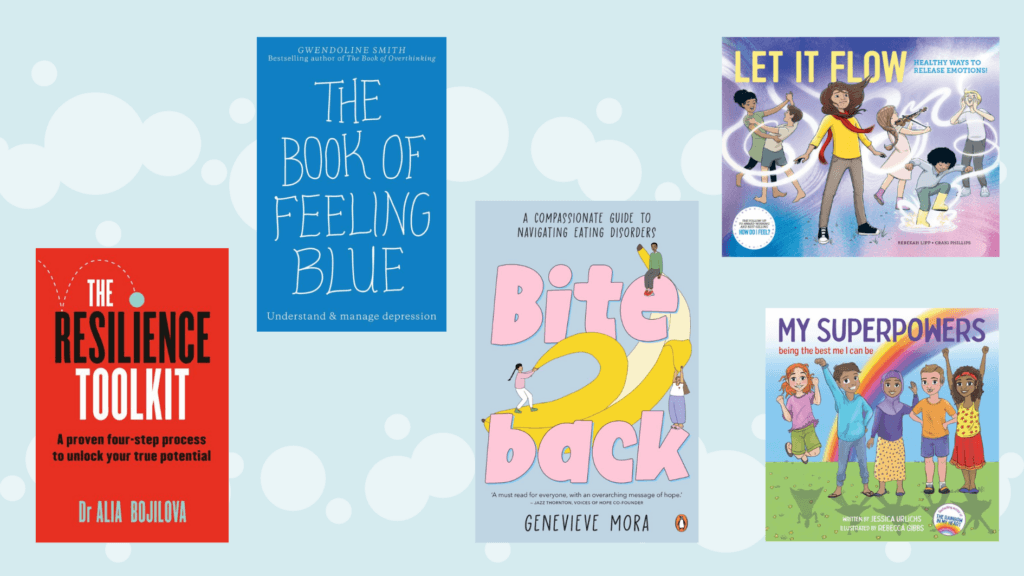
Let It Flow, by Rebekah Lipp and Craig Phillips
I have come to expect great things when it comes to Rebekah Lipp and Craig Phillips’ collaborations, and Let it Flow did not disappoint. This is the latest in the Aroha series, which began with Phillips’ Aroha’s Way in 2019, and includes the award-winning How Do I Feel? A Dictionary of Emotions for Children. The series is aimed at supporting children to build emotional literacy and develop healthy ways of experiencing and expressing emotions, but its gentle, clear, empowering approach means that while targeted at primary-aged children, the books are useful for people of all ages. Let’s face it, no matter how old we are, we all find experiencing uncomfortable emotions and self-regulation challenging at times!
It is these illustrations which make Let it Flow (and the other books in the series) particularly special
Let it Flow shares 25 suggestions for releasing emotions, but begins with a reminder about the importance of noticing, labelling, and sitting with our emotions; listening to what they are trying to tell us before we let their energy flow away. For each, Lipp clearly outlines the strategy—such as Cry It Out, Stomp It Out, Quieten It Down, and Throw It Away—explaining ‘Ways to do this’ and ‘How this can help’, and she also provides a list of emotions the strategy might be helpful in expressing. Using a conversational style and language that even young children will understand, Lipp’s words are filled with warmth and energy, qualities that are reflected in Phillips’ accompanying illustrations.
It is these illustrations which make Let it Flow (and the other books in the series) particularly special. Phillips somehow manages to capture just the right emotion in the faces and bodies of the children in the book as they practise the strategies for letting emotion flow, and his images perfectly complement Lipp’s words. The illustrations also reflect diversity in age, ethnicity and gender, and gently challenge stereotypes around the ways different people should be expressing their emotions.
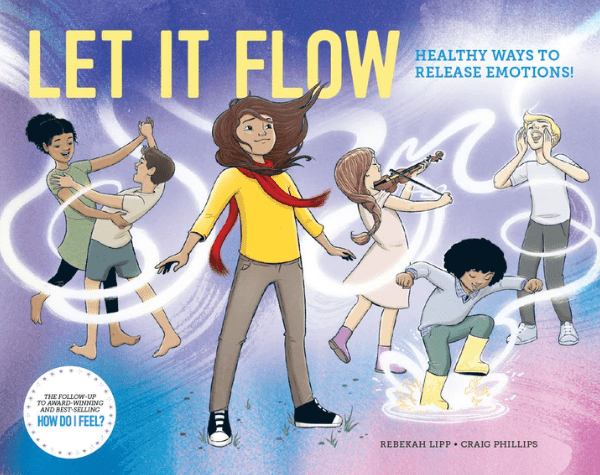
Let it Flow: Healthy Ways to Release Emotions
By Rebekah Lipp
Illustrated by Craig Phillips
Published by Wildling Books Ltd.
RRP: $29.99
My Superpowers, by Jessica Ulrichs and Rebecca Gibbs
Colourful and high energy, My Superpowers uses rhyme and eye-catching illustrations to engage young readers and share an important message: your communication, emotional, and relational skills can be superpowers that you can use to transform your day and be your best self.
Ulrichs and Gibbs bring us a group of primary-aged children, each with their own personal struggles that they are able to face by using a personal strength or skill that they come to see as their superpower. One child uses persistence to manage his frustration, another deals with sensory overwhelm by using self-regulation strategies, and yet another engages her strong imagination to keep boredom at bay. The powerful thing for readers is that all of the strengths and skills the children access in the book are available to them too. They are the everyday superpowers that all people can develop and nurture, and use to face life’s challenges.
The powerful thing for readers is that all of the strengths and skills the children access in the book are available to them too
Gibb’s illustrations are charming and she portrays each child’s personality and emotions not only through attention to their faces and movements, but also through careful colour choices. She has also given thought to representing a range of different children in the book, including a deaf child, a child with crutches, and a child who can be read as neurodivergent. My eight-year-old son was captured by the superhero shadows belonging to each child, liking the idea that while our superpowers might not be obvious at first glance, we all have some.
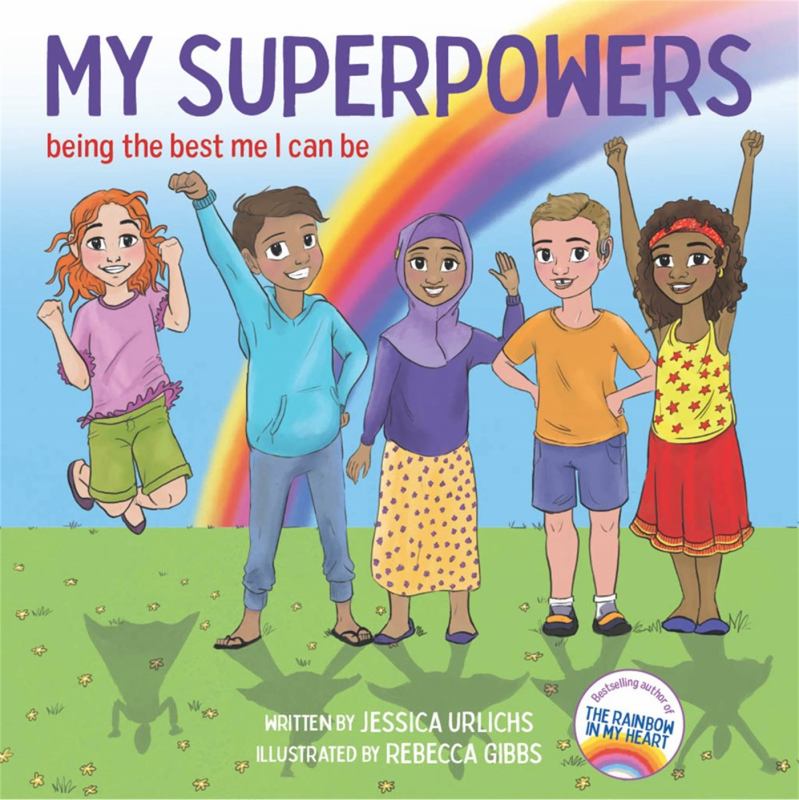
My Superpowers: Being the Best Me I Can Be
By Jessica Urlichs
Illustrated by Rebecca Gibbs
Published by Hachette NZ
RRP: $20.00
Bite Back, by Genevieve Mora
Bite Back shares Genevieve Mora’s experience of living with and recovering from anorexia, anxiety, and obsessive-compulsive disorder (OCD), along with the stories of sixteen other young people who have battled eating disorders and won. Their voices are youthful, individual, and engaging, and their different stories help to destigmatise eating disorders and also illustrate a range of diagnoses and recovery journeys—useful in normalising the individual nature of peoples’ experiences, and in sharing different advice and strategies for recovery.
Hope is woven throughout [the book], with the focus on recovery and life on the other side
While you might expect a book on the topic of eating disorders to be quite dark, this is the opposite. Hope is woven throughout, with the focus on recovery and life on the other side. Mora writes ‘ultimately my biggest wish is that it gives the reader hope. Hope that things can get better, hope that recovery is possible—and true hope that your story is not over yet’ and the book fulfils her wish. None of the stories included in the book minimise or deny the danger, challenges, and misery that go along with eating disorders, but all of them emphasise the possibility of leaving those things behind and moving forward into a life of connection, meaning, and fulfilment.
The book is infused with empathy for people who are living with an eating disorder and for those who love them. Mora highlights the fact that people are separate from their diagnosis, that the eating disorder is not who they are. This externalisation of the disorder was incredibly impactful in her own recovery, both for herself and her family, and so she emphasises throughout the book that the person is not the problem, the eating disorder is.
Mora also shares a number of other strategies which were useful for her recovery, and others which are aimed at people supporting a loved one. The second part of the book is structured like a FAQs section, with Mora answering common questions carers may have, and providing useful tips, tools and creative activities to help them support their loved one as they are ‘battling to get rid of the eating disorder monster’.
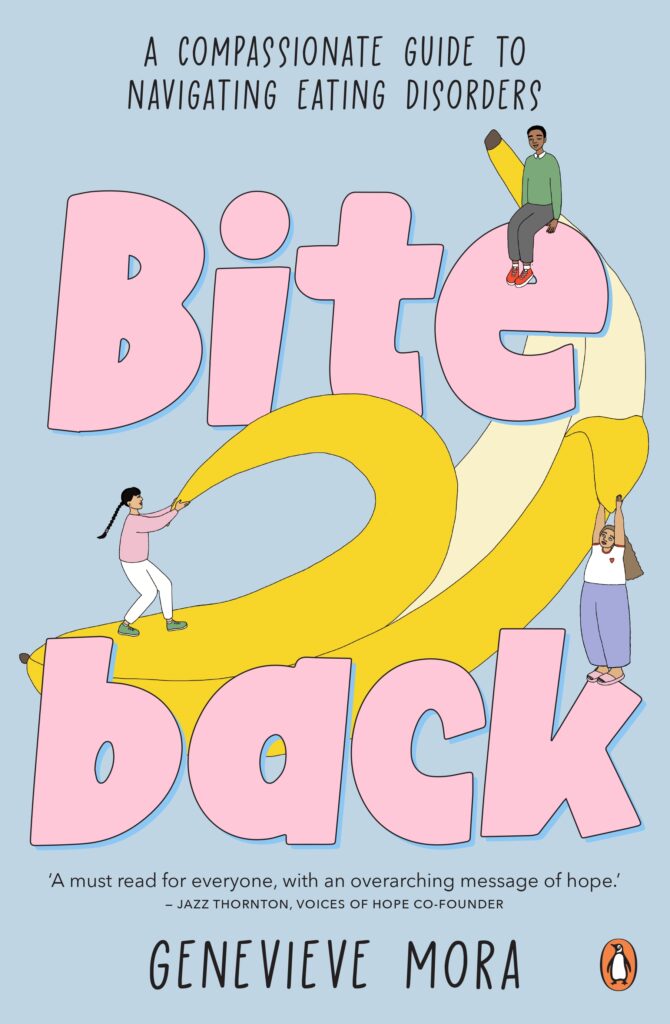
Bite Back: A Compassionate Guide to Navigating Eating Disorders
By Genevieve Mora
Published by Penguin
RRP: $38.00
The Book of Feeling Blue, by Gwendoline Smith
The Book of Feeling Blue is psychologist Gwendoline Smith’s latest book in a series aimed at educating people about common mental health issues—including The Book of Knowing, The Book of Overthinking, and The Book of Angst—and providing them with tools to support them in a journey towards mental wellness.
Smith introduces this book as a means of demystifying and destigmatising depression through education, and that purpose provides a solid foundation for the rest of the book. She begins this process from the first chapter of the book by normalising sadness and low mood as ‘part of our emotional repertoire’, and continues through a thorough examination of the difference between ‘the blues’ and depression, by questioning and exposing some of the negative and stigmatising societal attitudes to depression, medication, and asking for help, and by sharing her own experiences with manic depression (bipolar).
Much of The Book of Feeling Blue outlines the symptoms and causes of depression, and different treatment options and approaches available for supporting people towards wellness. While Smith does touch on a range of different approaches for managing depression, she emphasises the importance of medication and therapy, both of which are not as accessible here in Aotearoa as we would all like them to be. It would have been useful to explore with more depth strategies for managing depression which people can use independently if they are waiting for or unable to easily access professional support.
Smith uses what has become her signature colloquial style, and includes drawings to illustrate her ideas, often in a lighthearted way.
The second half of the book is made up of a number of chapters looking at different groups of people and how depression may show up in their lives, for example looking at postpartum mothers, teenagers, members of the Rainbow community, and the elderly.
An accessible read despite the serious subject matter, Smith uses what has become her signature colloquial style, and includes drawings to illustrate her ideas, often in a lighthearted way. Having said that, readers might find elements of the book quite challenging, particularly if they have experienced depression themselves, or lost loved ones to suicide. Some of the language Smith chooses–referring to being ‘mad’, and ‘crazy’ and using the term ‘committed suicide’, for example–I found quite jarring and potentially undermining of her mission to destigmatise mental illness. As with anything focused on mental unwellness and suicide, take care of yourself while you read.
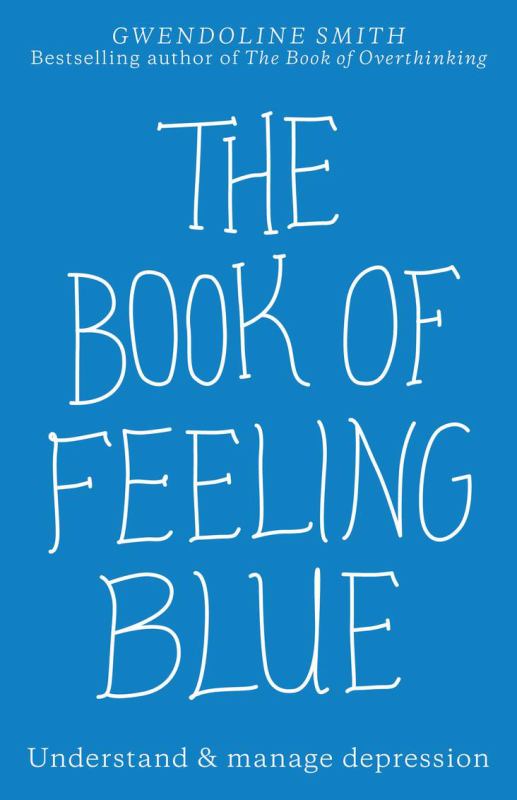
The Book of Feeling Blue: Understand & Manage Depression
By Gwendoline Smith
Published by Allen & Unwin
RRP: $28.00
The Resilience Toolkit, by Dr Alia Bojilova
In The Resilience Toolkit, Dr. Alia Bojilova leads us into an exploration of what resilience means for us, and guides us to think about how we might nurture and strengthen that resilience in our own lives. A self-professed ‘resilience geek’, Bojilova shares insights gained through years of work as a psychologist and study into psychology and peak performance.
The book presents Bojilova’s ABCD process for developing resilience—Awareness, Belonging, Curiosity, and Drive. She explains ‘Awareness fuels resilience by allowing you to stand firm feet on the ground, eyes, mind and heart wide open; belonging grounds you; curiosity allows you to explore ways in which you might surmount obstacles. Drive… allows you to sustain commitment to your goal’. Each element of the ABCD process is explained in detail and key ideas are supported by stories of people who demonstrate thinking and behaviour which has allowed them to nurture resilience and not only face challenges, but grow through them. Most of the ‘resilience heroes’ who feature are SAS soldiers, and the ideas in the book are heavily influenced by Bojilova’s experiences in the New Zealand Defence Force and as a UN Military Observer, which risks distancing the concept of resilience from readers by attaching it firmly to people who are working in extraordinary circumstances. While Bojilova is clear that resilience does not equal toughness, the focus on military personnel and conflict/war situations unintentionally makes that connection, and this somewhat undermines the idea that ‘everyday’ people can be highly resilient too. The book does include stories about others, from elite athletes to successful business people to Bojilova’s own diving instructor, but it is the soldiers that take the spotlight.
People will find the activities thought provoking and will likely gain a deeper insight into their own thinking and behaviours by completing them.
The ‘toolkit’ element of the book comes in the form of a range of reflective and mindfulness activities which allow readers to explore and build their own ABCDs, and which encourage us to direct our thinking and behaviour towards resilience. People will find the activities thought provoking and will likely gain a deeper insight into their own thinking and behaviours by completing them.
One element of the book which I found challenging was Bojilova’s focus on personal choice. She argues that ‘resilience is all about choices’, and encourages readers to examine various elements of their lives and to ‘pivot’ in the direction of resilience and fulfilment. In places this does read like advice to ‘just choose something different’, which I think ignores the fact that some people, due to issues of power and privilege, personal circumstances outside their control, mental illness, and trauma (for example) are more restricted in their choices than others. Also, many people (myself included) find it almost impossible to ‘just think about something else’ and the message that we can always choose a different attitude or to change our thinking can add to our distress by making us feel guilty or not good enough if we try to ‘pivot’ and fail to do so. Bojilova does acknowledge that changing our thinking and behaviour can be challenging, and encourages people to foster an attitude of self-compassion and develop self-awareness, which I agree with wholeheartedly, but it would have been good to emphasise this more alongside her encouragement to make useful choices.
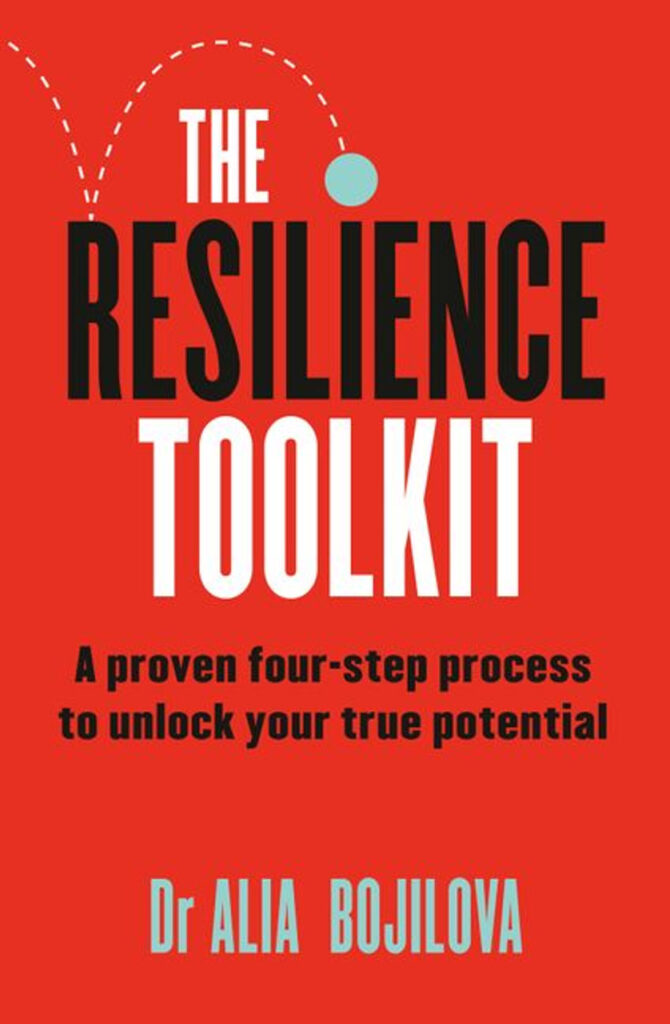
The Resilience Toolkit: A Proven four-step Process to Unlock Your True Potential
By Dr Alia Bojilova
Published by HarperCollins NZ
RRP: $38.00
MENTAL HEALTH RESOURCES (COURTESY OF THE MENTAL HEALTH FOUNDATION)
https://mhaw.nz/—Mental Health Awareness Week website
Free call or text 1737 any time for support from a trained counsellor
Lifeline – 0800 543 354 (0800 LIFELINE) or free text 4357 (HELP)
Youthline – 0800 376 633, free text 234 or email talk@youthline.co.nz or online chat
Samaritans – 0800 726 666
Suicide Crisis Helpline – 0508 828 865 (0508 TAUTOKO)
Healthline – 0800 611 116
A comprehensive list of available helplines can be found at https://mentalhealth.org.nz/helplines.

Louisa Woods
Louisa Woods is a counsellor and former English teacher, currently living in Blenheim with her husband and three children. Much of her writing focuses on supporting, and communicating with children and adolescents and she takes great pleasure in being able to combine her love of books with her passion for working with our young people in writing for The Sapling. You can find her on Facebook.



